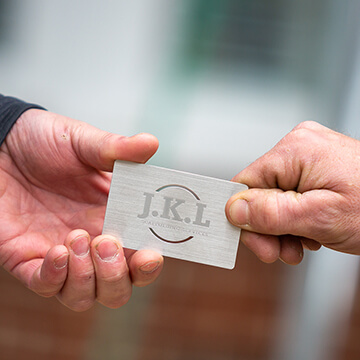Embarking on a construction project in Kent demands meticulous consideration of scaffolding solutions tailored to the region’s unique demands. It calls for a comprehensive understanding of how scaffolding goes beyond a mere support structure, becoming a key player in ensuring safety, efficiency, and seamless progress.
This blog navigates the maze of selecting the right scaffolding by delving into its importance, its diverse types, factors that influence the selection process, and crucial safety considerations.
You can speak to our scaffolding experts at JKL Scaffolding Services directly. We’d love to help you choose the right solution for your scaffolding needs and offer our professional services. Call 0800 061 4800 or email info@jklscaffolding.co.uk now.
The importance of scaffolding in construction projects
Scaffolding is a temporary structure erected to support workers and materials during the construction, maintenance, or repair of buildings. Comprising platforms, braces, and frames, scaffolding provides a safe and elevated work environment.
It serves as the enabling infrastructure that empowers workers to reach heights, navigate challenging structures, and execute tasks efficiently. Moreover, the strategic placement of scaffolding contributes to a seamless workflow, optimising the construction process.
The importance of scaffolding extends beyond functionality, embodying a commitment to safety, efficiency, and the successful realisation of diverse construction endeavours across domestic, commercial, and industrial spheres in Kent. Scaffolding solutions for construction projects vary widely, and understanding the nuances of each type can significantly impact the success of your build.
choosing the right scaffolding solution is not a one-size-fits-all endeavour
Types of scaffolding solutions
-
Domestic scaffolding
Tailored for residential projects, domestic scaffolding emphasises minimal disruption to the property whilst ensuring safe access for construction and maintenance. Tips for domestic and commercial scaffolding include ensuring that scaffolding is installed with care to avoid any damage to the property.
Its design considers the unique features of homes and provides a secure platform for various tasks without compromising aesthetic integrity.
-
Commercial scaffolding
Crafted to meet the demands of commercial structures, this scaffolding type prioritises versatility.
It is adaptable to diverse building designs and accommodates the complexities of office buildings, retail spaces, and other commercial structures. This type of scaffolding offers a stable foundation for construction, maintenance, or renovation endeavours, making it ideal for a range of commercial scaffolding projects.
-
Industrial scaffolding
This scaffolding type addresses heavy-duty requirements and is engineered for the challenges of large-scale industrial projects.
Capable of supporting substantial loads, industrial scaffolding facilitates efficient and secure access to elevated work areas within industrial settings, ensuring productivity and safety align with the scale of the project.
8 major factors influencing scaffolding choice
-
Project size
Tailoring scaffolding to project size is paramount. Smaller projects may benefit from easily movable and adjustable scaffolding solutions, whilst larger ventures demand robust, scalable solutions to accommodate varied work scopes efficiently.
-
Environmental considerations
Adapting scaffolding to environmental factors is crucial. Weather conditions, terrain, and site-specific challenges influence the choice of materials and design.
Resilient scaffolding ensures stability, even in adverse conditions, safeguarding both workers and the project’s timeline.
-
Accessibility requirements
Understanding accessibility needs directs the choice of scaffolding. Whether navigating tight spaces or accommodating specific entry points, scaffolding should be customised to facilitate seamless access for workers and materials.
-
Project duration
Considering the project timeline influences the selection of scaffolding materials. For short-term projects, cost-effective options may suffice, but long-term endeavours benefit from durable, long-lasting scaffolding solutions. Balancing scaffolding cost in the UK with project needs is essential to maintain both budget and quality.
-
Budget constraints
Balancing quality with budget constraints is crucial. Select cost-effective scaffolding without compromising safety or functionality. This is an essential step in optimising project resources.
At JKL Scaffolding, we will conduct a thorough survey of your site and listen to your unique requirements including budget constraints before offering you a quotation tailored to your needs. Call 0800 061 4800 to enquire now.
-
Structural requirements
Adhering to the structure’s intricacies is paramount. Scaffolding must align with the building’s design, supporting workers and materials efficiently whilst minimising any potential impact on the existing structure.
-
Regulatory compliance
Meeting safety standards and regulatory requirements is non-negotiable. Scaffolding choices must align with industry regulations, ensuring a secure and legally compliant work environment.
-
Project complexity
The complexity of tasks influences scaffolding choice. Intricate projects may necessitate specialised scaffolding with features such as multiple platforms, advanced safety measures, and flexibility to adapt to evolving project needs. Avoid common scaffolding mistakes by ensuring the chosen scaffolding matches the project’s demands.
Choosing scaffolding that complements the project’s complexity enhances overall efficiency and safety.
Contact JKL Scaffolding
Important safety considerations in scaffolding
-
Stringent safety standards
Adhering to rigorous safety standards is the cornerstone of effective scaffolding. From initial setup to daily operations, scaffolding must meet and exceed industry-defined safety measures to ensure the well-being of workers and the integrity of the project.
At JKL, we take the health and safety of our clients as well as our team members extremely seriously. Our professionals are fully trained, and they come equipped with the necessary PPE based on the type, scale, and complexity of the project.
-
Industry compliance standards
Scaffolding solutions should align with industry regulations and compliance standards. Regular inspections and adherence to relevant codes guarantee a secure working environment, minimising the risk of accidents and ensuring legal compliance.
-
Adequate training
Ensuring that workers receive comprehensive training on scaffolding use is imperative. Competent, skilled workers contribute to the safe assembly, disassembly, and daily operations of scaffolding structures.
-
Load-bearing capacity
Understanding and respecting the load-bearing capacity of scaffolding is paramount. Rigorous assessments of the materials used, coupled with regular inspections, prevent overloading and potential structural failures, enhancing overall safety.
-
Fall protection measures
Incorporating fall protection measures is non-negotiable. Guardrails, safety nets, and personal protective equipment are integral components, reducing the risk of falls and enhancing the safety of workers at elevated heights.
-
Routine inspections
Routine inspections of scaffolding structures are essential. Identifying and addressing potential issues promptly ensures that the scaffolding remains structurally sound and safe for use throughout the duration of the project.
With our meticulous project management at JKL, you can rest assured that your scaffolding will be in the good hands of industry experts.
-
Weather considerations
Factoring in weather conditions is crucial for scaffolding safety. Adverse weather can impact stability and create hazardous conditions. Protocols for securing scaffolding during inclement weather protect both workers and the integrity of the structure.
-
Emergency preparedness
Having robust emergency preparedness protocols in place is vital. Clear evacuation procedures, access to first aid, and contingency plans contribute to a swift and effective response in case of unforeseen events, prioritising the well-being of all personnel involved in the project.
Conclusion
In the construction landscape of Kent, choosing the right scaffolding in kent is not a one-size-fits-all endeavour. By understanding the importance of scaffolding, exploring different types, considering key influencing factors, and prioritising safety, you can make informed decisions tailored to your project’s unique needs.
Elevate your domestic, industrial, or commercial construction projects with bespoke scaffolding solutions designed for success. Trust JKL Scaffolding Services to offer you great quality, a reliable team, and a responsible approach. Contact us now to get started.



